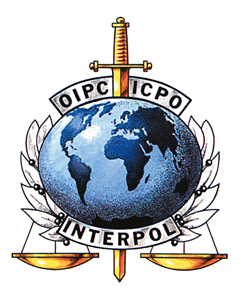Thorvald of Lym
A Little Sketchy
The Central Committee officially announces the re-establishment of INTERPOL


The International Criminal Police Organization (INTERPOL) aims to facilitate co-operation between state police agencies to uphold law and security worldwide. We strive to provide police around the world with the tools and services necessary to function to the best of their ability. We enable global access to police data and information, and provide operational support on specific priority crime areas.
What We Are
- A voluntary partnership. States may join INTERPOL on a purely elective basis, and are free to leave the organization at any time.
- A communications nexus. INTERPOL provides police agencies with a central databank of relevant information. We offer member states a common forum to discuss and coordinate international crime-fighting strategies.
- A UN associate. INTERPOL acts in accordance with the Union of Nations, and provides biennual reports to the General Assembly to assist states in developing security policy.
What We Are Not
- A politically-motivated organization. INTERPOL adheres to full diplomatic neutrality, and will not intervene or otherwise act in a political, military, religious or racial character.
- A legislative body. INTERPOL is not a lawmaker, and will work to the best of its ability within the limits of existing state laws.
- A judiciary. Persons arrested are the responsibility of the state legal system or a UN-sanctioned international court.
Official INTERPOL membership comprises two tiers:
The Central Committee is responsible for gathering and processing national police and intelligence data relevant to the scope of its investigations, as well as the administrative duties of the organization. Prospective committee members are screened based on confidence in their ability to properly safeguard classified information.
States that have been declined a committee position, or do not aspire to one, may also opt for associate status to permit local investigations by INTERPOL agents. While associates do not have direct access to the central databank, they may submit requests for information, and will have priority access to domestically-relevant data.
Associates and non-member states may freely submit information to INTERPOL. For general inquiries, see the office in the Union of Nations. For inquiries of a sensitive nature, or to submit information to the databank over secure channels, contact any Central Committee representative.
INTERPOL Central Committee
- Federal Union of China
- Republic of Rome
- Republic of Turkistan
- Angola
- Swahili Kingdom
Associate partners
- Jiangsu
- Guangxi
- Yunnan
- Uttar Pradesh
- Airstrip One
- Hellas
- Benin
- Namibia
- Socialist Union of Democratic States
- Argentina
As part of routine operations, INTERPOL Notices are international alerts allowing police in member countries to share critical crime-related information. Notices are issued at the discretion of the Central Committee; member states may request the issue of a notice for matters of domestic attention, and the Union of Nations Security Council may request a special notice for persons or entities subject to sanctions.
[TABLE="head"]Notice|Marker|Definition
Red Notice|

Blue Notice|

Green Notice|

Yellow Notice|

Black Notice|

Orange Notice|

Purple Notice|

INTERPOL–Union of Nations Security Council Special Notice|

Last edited:

 I must have just missed it. Repatriated.
I must have just missed it. Repatriated. 
 .
.